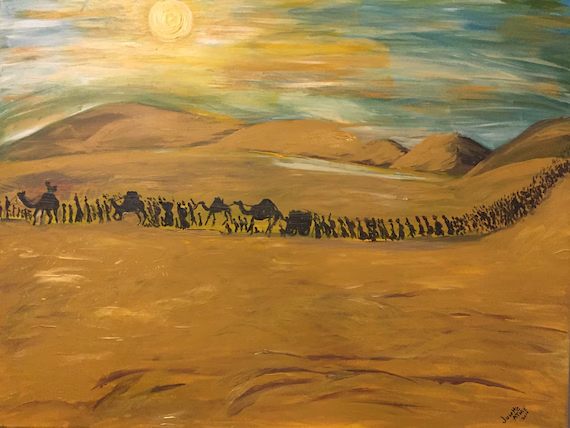The Beginning
Every day should be a holy day
Long ago, before there was any time. God created the heavens and the Earth. At first there was nothing but a vast dark space of swirling water.
God looked at the darkness and made the light. There was now the light of day and the dark of night. This was the very first day.
On the second day, God made the sky. He put some of the water in clouds in the sky, and the rest of the water He made into the seas. In between the sky and the seas was the air.
Then God collected the seas together so that there was dry land between them. He ordered all kinds of plants and trees to grow on the land to produce seeds and fruit. That was the third day.
On the fourth day. God put the brilliant golden sun in the sky to shine during the day, and the silver moon and stars to shine at night. Together they marked the seasons of the year.
Next God created all the fish and creatures that live in the seas, and all the birds and creatures that fly in the air. He blessed them, and told them to have their young and to live all over the earth.
On the sixth day. God made all the creatures that live on the land from the huge wild animals to the smallest insects that creep among the plants.
Then God picked up a handful of dust, pressed and shaped it. He breathed on it until it became the first living man. He called the man Adam.
Because God didn't want Adam to be lonely he created a woman. He called her Eve. In those six days God created the whole world and every living thing: all the trees and plants, birds, fish and animals, and the first human beings.
He looked at what He had made and saw that it was good.
On the seventh day. God rested.
Because He rested.
He blessed this day, and said that every seventh day should be a holy day of rest.












Comments
Post a Comment